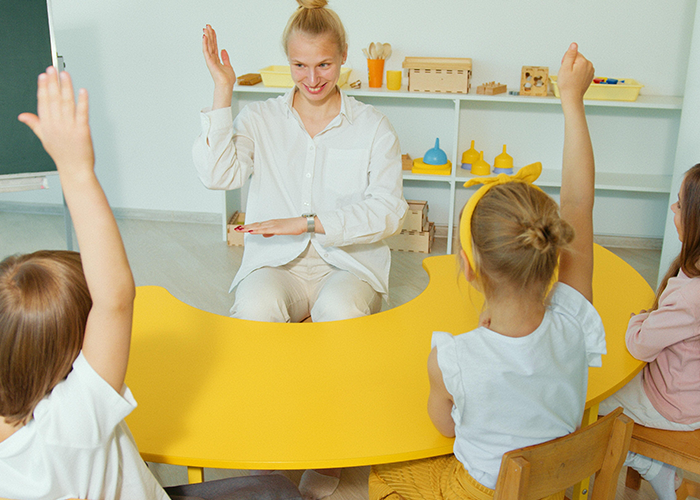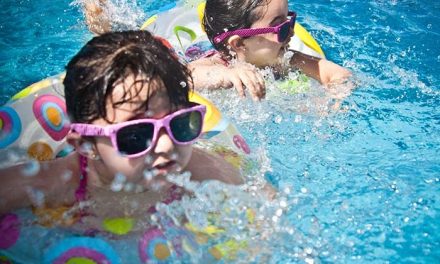The role of school education plays a huge role in a child’s health. It promotes healthy eating and practicing physical activities, alongside providing an environment for students to engage in such conduct. These conventions create a lifelong impact on their health routines, leading to a fit individual and eventually, a healthier society.
This article will describe varied elements of school education’s role in impacting a child’s healthy growth.
Mental Aspect Of School Education
School is the elementary foundation of education in a child’s life. It provides them with a chance to acquire knowledge on various factors essential for every individual. These may include relations, literature, sports, arts, people, and many other aspects. The diversification of subjects lets the child cultivate a thought process that further builds their decision-making skills.
Exposure to an influential environment sourced from diverse knowledge and cultures automatically widens their freedom. Hence, their existence gets identified, eventually contributing to their overall mental development.
Kids Become Familiar To Social Life
Before beginning school, kids become familiar only with their parents and other family members. It is only at a pre-school where a child socializes for the first time. In today’s fast-paced world, where people prefer to live in nuclear families, the function of school becomes even more necessary. In the new environment, kids get exposed to creative ideas and find companions of the same age.
All this encourages them to acquire friendship, empathy, participation and help others. It encourages children to stay cheerful and live independently in society. Ultimately, these skills turn out to be significant during their later years.
School Facilitates Growth of Child’s Physical Health

Playing with buddies of similar age groups facilitates a child’s physical development and unfolds social habits in them simultaneously.
Since birth, a child undergoes considerable changes physically. The home provides a limited environment. Although you might help your child endeavor some physical activities indoors, the home still restricts them from digging into the extent of physical learning.
On the contrary, a school allows kids to direct their energy into more sociable passages. Studies have proved that a child learns to be at their best behavior exclusively with same-aged buddies. It induces a sudden blaze of energy when the child spends time in a more familiar atmosphere. While they play around with their co-mates, it strengthens their limbs and contributes to their physical evolution. To sum up, physical education given by schools facilitates an individual’s physical and mental fulfilment by involving multiple innovative activities.
Overall Character Development
With generations, the role of school education has evolved drastically. Here are a few steps on how school education has evolved to contribute towards a child’s growth.
- Earlier, schools operated to teach educational subjects limited to history lessons, mathematics, and skills like poetry and storytelling.
- There has been up-gradation in traditional teaching methods with the evolution in time. Schools have gone beyond formal teaching limitations, making them responsible for the child’s overall growth.
- Practical and high-grade educational practices promote sound mental health in children and help overcome any linkage to behavior problems in the youth. Residence habitat does not enable such routines, resulting in adverse outputs such as social incompetence, lack of self-confidence, fear of speaking in the masses, self-isolation, and becoming introvert.
School Helps To Identify Physical & Mental Concerns In Children
Since school education helps kids socialize and become extroverts, change in social conduct can help detect serious issues.
Having any of the following detectable changes, your child might be a victim of mental, physical, or social concerns:
- When a child is disturbed, it becomes visible through behavior differences and reactions towards situations. Teachers and parents can foresee any risk-taking modifications such as consumption of intoxicants, life-threatening adventures, and early sexual activeness, which can warn of severe future trouble.
- Any psychological transitions become apparent through variations in the child’s social manners. These behaviors include a sudden decline in academic performance, raised shyness, irritability, sudden change in peer groups, isolation from others, aggression, and mental absence during classroom lectures. If you notice any such changes within a short span, it could signal you to become more attentive.
Conclusion
School confirms to be a massive tool in a child’s health and evolution. In context with the discussion so far, it is found that health is an essential aspect of life, and it lays the foundation of a child’s career and lifestyle. School plays a vital role in a child’s growth and builds harmony amongst physical efficiency and mental cautiousness, creating a balanced individual.






